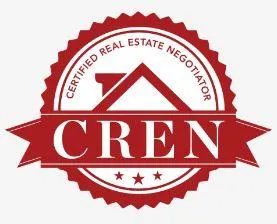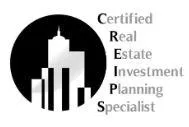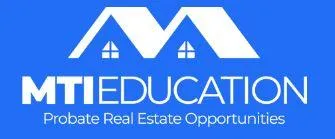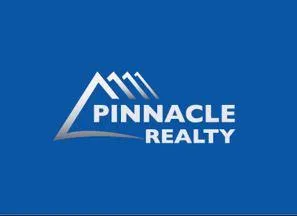Your Memphis and Mississippi Real Estate Expert
At Realtor In A Car, our mission is to streamline the process of selling your property in Memphis, Mississippi, and surrounding areas, ensuring you get the best value in the shortest time possible. We're equally committed to helping you find your dream home with ease and confidence. Discover the difference our personalized approach can make…

“He is knowledgeable about the market and very capable about determining pricing”
We chose Harry Samuels as our real estate agent when we sold our home in late 2023. We are so glad that we did!! He is knowledgeable about the market and very capable about determining pricing. He has connections for buyers ' loans, repairs, etc. He was at our side every step of the way!! During any stressful times, he was calm and professional! We can strongly recommend Harry for both selling and buying!!
SHARI C - April 2024
Comparing Real Estate Agents in our area?

A Little About Harry
Harry's dedication is all about achieving one simple yet profound goal – ensuring his clients' happiness. "I thrive on educating and assisting people," he affirms. "For me, it's always been about prioritizing the individual over everything else. At our firm, we firmly believe in 'People before things,' knowing that when we prioritize our clients' needs, success naturally follows."
With a remarkable track record of over 10 years in real estate and a wealth of experience from leading his family business for four decades, Harry approaches each transaction with a proactive mindset, anticipating challenges before they arise. "After years in the industry and countless successful deals, I've learned to stay ahead of the curve," he quips modestly. Together with his dedicated team at Pinnacle Realty, Harry ensures that every client receives top-notch service and professionalism, resulting in consistently smooth and enjoyable experiences.
Harry's commitment to excellence doesn't go unnoticed. His clients rave about their experiences, spreading the word about his exceptional service through a multitude of online reviews. Whether it's buying, selling, or investing in real estate, Harry is the trusted name that clients turn to for unparalleled expertise and personalized care.





“He will definitely be my go-to realtor for any future needs”
Harry was a pleasure to work with both selling my home and buying a new one. He was patient, took the time to explain things to me and was always available to help me. He is an outstanding professional and a truly great guy. He will definitely be my go-to realtor for any future needs and he goes above and beyond to make the experience smooth and stress free!
LARRY S. - April 2024



Are you considering buying or selling property in Memphis, Mississippi, or anywhere in the surrounding areas? In search of a seasoned real estate professional to guide you through the process with expertise and care?
Come discover how Realtor In A Car delivers an exceptional experience whether you're buying or selling your property!
At Realtor In A Car, we understand the importance of selecting the right real estate agent for your needs. With numerous options available, it's essential to recognize that not all agents offer the same level of expertise and service. With over hundreds transactions under our belt, our team possesses unparalleled knowledge of the local markets in Memphis, Mississippi, and beyond. We employ innovative marketing strategies to assist sellers in maximizing their property's exposure and to help buyers discover the finest properties, whether on or off the market.
If you're considering selling your property in Memphis or Mississippi, Realtor In A Car is here to guide you through the process seamlessly. We specialize in implementing unique marketing approaches that set us apart from the competition, ensuring your property receives optimal visibility to the right audience at precisely the right moment.

Harry D. Samuels | Realtor & Associate Broker
Tennessee license #327934
Mississippi license # S-51910

Finn - Chief FIDO Officer (left)
Birdie - Chief Security Officer (right)
Buying?
If you're in the market to purchase a home or property in the Memphis or Mississippi area, Realtor In A Car offers the expertise necessary to simplify the buying process and minimize unnecessary delays. We prioritize your preferences and needs, presenting only the properties that align with your criteria and budget while respecting your time and preferences.
Countless homeowners and real estate investors throughout the region have entrusted Realtor In A Car to navigate them through the complexities of real estate transactions. Our team comprises dedicated professionals committed to achieving your real estate objectives efficiently and effectively. With Realtor In A Car, you can keep your hard-earned money in your pocket while avoiding the hassle of dealing with less experienced agents.


“I have worked with Harry Samuels for a while.
He is great to work with”
He is great to work with, is responsive, thorough and honest. I highly recommend him.
S.M. - April 2024
When you choose to partner with Realtor In A Car, you can expect...
Confidence and peace-of-mind that comes from working with seasoned professionals who understand the nuances of the Memphis and Mississippi real estate market.
Respect and integrity at every step of the process. We genuinely care about each client and prioritize open communication and transparency.
Access to comprehensive data and analytics to empower you to make informed decisions regarding your Memphis or Mississippi property transactions.
Mitigation of potential costly mistakes often associated with complex transactions, ensuring a smooth and successful experience.
A personalized approach tailored to your unique goals and preferences, ensuring your best interests remain our top priority.
Discover what sets us apart! Contact us at (901) 486-2894 or explore the valuable resources available on our website
Complimentary Market Analysis
Thinking about listing your home? There's no better time than now. Discover the current market value of your property today.
Homes Available in Memphis and Mississippi
On the hunt for your dream home in Memphis or Mississippi? Explore our extensive listings and enjoy the expertise of our exceptional buyer's agents.
Realtor In A Car
Why choose us over a national real estate chain? As the premier real estate brokerage in Memphis and Mississippi, we deliver unparalleled service and results. Find out why we're the right choice for you...
“Harry is very knowledgeable, efficient, and is not pushy”
Harry is very knowledgeable, efficient, and is not pushy, which is exactly what we needed. I would recommend him to anyone.
SUZANNE B – April 2024

Learning About Real Estate
Buyer's Market
Buying or Selling Real Estate
Home Equity
Good Time To List Your House
Disclosures
How Quickly Will My Home Sell
When it comes to selecting a real estate team in Memphis and Mississippi, experience reigns supreme. Our team brings a wealth of local and industry-specific knowledge to the table, empowering countless buyers and sellers to achieve their financial goals and secure their ideal properties.
At Realtor In A Car, navigating the local real estate market is a seamless experience. Our approachable team of top-tier agents is dedicated to guiding you through every stage of the buying or selling journey with ease. Say goodbye to complex transactions – we prioritize efficiency and simplicity in every interaction. With our unwavering commitment to client satisfaction, you can trust that your real estate needs are in capable hands. Discover the Realtor In A Car difference today!
Give me a call today to chat about your situation! (901) 486-2894
Give Me A Call Today!
(901) 486-2894
Realtor In A Car
Harry D. Samuels
901-486-2894
Pinnacle Realty
901-707-7700
299 S. Walnut Bend-Suite 100
Cordova, TN 38018






